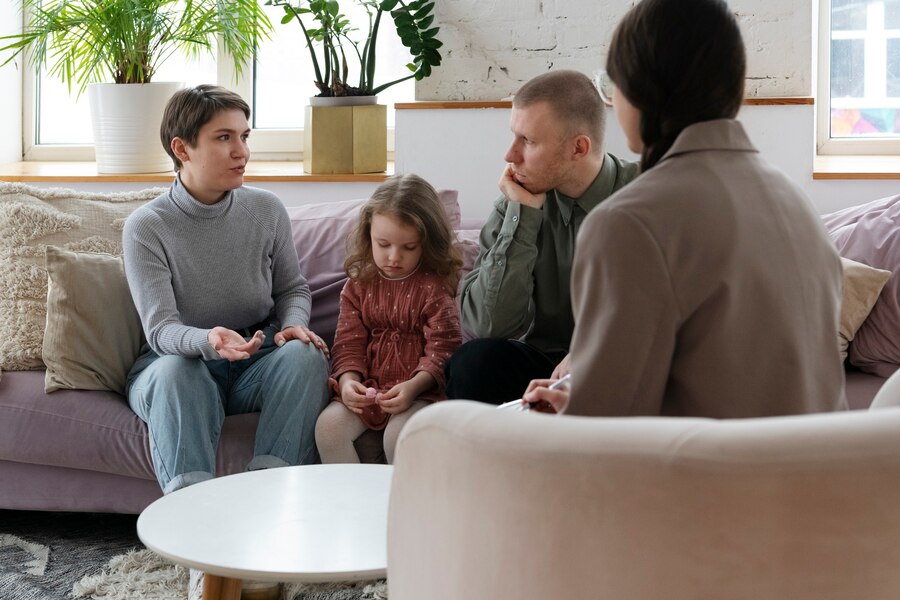In the journey towards recovery from addiction or mental health challenges, having a solid support system can make all the difference. In the realm of Intensive Outpatient Programs (IOPs), where individuals receive structured treatment while still living at home, family support plays a pivotal role. The title of our discussion, Family Support’s Role in Intensive Outpatient Programs, encapsulates the essence of this crucial element. In this blog post, we delve into the significant impact that familial encouragement, understanding, and involvement have on the success of IOPs. From providing emotional stability to fostering a conducive environment for growth, family members serve as pillars of strength for those undergoing treatment. We’ll explore the various ways in which family support enhances the effectiveness of IOPs, and offer insights into how both individuals undergoing treatment and their loved ones can actively contribute to the recovery journey. Join us as we uncover the profound influence of family support in the realm of intensive outpatient treatment.
From Struggle to Strength: Transforming Family Dynamics in Intensive Outpatient Programs
In the journey of overcoming addiction or mental health challenges, the role of family cannot be overstated. Intensive outpatient programs (IOPs) provide a unique opportunity not just for individuals but for entire families to navigate through these struggles together. This article delves into the transformative power of family dynamics within the framework of IOPs, showcasing how these programs facilitate healing and resilience within familial relationships.
Recognizing the Impact
The first step in transforming family dynamics in IOPs is acknowledging the profound impact addiction or mental health issues have on family dynamics. From strained communication to heightened tension, these challenges often strain relationships. However, within the safe space of IOPs, families can confront these issues head-on, paving the way for healing and growth.
Fostering Understanding
Central to the transformation of family dynamics is fostering a deep understanding of the challenges faced by both the individual undergoing treatment and their loved ones. Through educational sessions and group therapies, IOPs provide families with the knowledge and empathy needed to support their loved ones effectively.
Building Trust
Addiction and mental health struggles can erode trust within families, leading to feelings of betrayal and resentment. In IOPs, structured therapy sessions and family counseling provide a supportive environment for rebuilding trust. By fostering open communication and vulnerability, families can begin to mend fractured bonds.
Creating Boundaries
Healthy boundaries are essential for maintaining supportive relationships, especially in the context of addiction recovery. IOPs equip families with the tools to establish and uphold boundaries that promote accountability and mutual respect. This foundational aspect of family dynamics fosters a sense of safety and stability crucial for long-term recovery.
Encouraging Participation
Active participation in the treatment process is key for both individuals and their families. IOPs offer various opportunities for families to engage, from attending therapy sessions to participating in family weekends or workshops. By actively involving themselves in the recovery journey, families become integral partners in the healing process.
Empowering Families, Empowering Recovery: The Synergy of Support in IOPs
Intensive outpatient programs (IOPs) are not just about individual recovery; they’re about empowering families to play an active role in the journey towards wellness. In this discussion, we explore how the synergy of support within IOPs strengthens familial bonds, fosters resilience, and enhances the overall recovery process.
- Collaborative Approach: IOPs emphasize a collaborative approach to recovery, where families are viewed as essential partners rather than passive observers. Through education, therapy, and participation in treatment planning, families become empowered to actively support their loved one’s journey towards recovery.
- Education and Understanding: IOPs provide families with the education and resources needed to better understand addiction or mental health challenges. By equipping families with knowledge about triggers, coping strategies, and communication techniques, IOPs empower them to navigate challenges and support their loved one effectively.
- Healing the Family Unit: The healing journey in IOPs extends beyond the individual to encompass the entire family unit. Through family therapy sessions and support groups, families have the opportunity to address underlying issues, rebuild trust, and strengthen bonds, fostering an environment conducive to sustainable recovery.
- Building Resilience: By actively involving families in the recovery process, IOPs foster resilience within both individuals and their support networks. Through shared experiences, mutual support, and a sense of community, families learn to navigate challenges together, emerging stronger and more resilient as a result.
Beyond the Individual: The Collective Healing Journey in Intensive Outpatient Programs
Introduction: Intensive outpatient programs (IOPs) are more than just individual journeys of recovery; they are collective experiences that extend to families, communities, and beyond. In this exploration, we delve into the profound impact of IOPs on the collective healing journey, highlighting how these programs foster a sense of community, support, and shared growth that transcends individual struggles.
The Power of Shared Experience
At the heart of collective healing in IOPs lies the power of shared experience. Individuals participating in these programs find solace and understanding in the stories of others facing similar challenges. Group therapy sessions provide a platform for individuals to connect, empathize, and draw strength from one another’s journeys.
Family as the Foundation
While IOPs primarily focus on individual treatment, the involvement of families is integral to the collective healing process. Family therapy sessions, education workshops, and support groups within IOPs serve as avenues for families to come together, share experiences, and support one another through the challenges of addiction or mental health issues.
Community Support Networks
Beyond familial bonds, IOPs also tap into wider community support networks to enrich the collective healing journey. Peer support groups, alumni networks, and community outreach programs provide individuals with a sense of belonging and connection to a larger community of recovery.
Breaking the Stigma
Collective healing in IOPs extends beyond individual participants to challenge societal stigmas surrounding addiction and mental health. Through advocacy efforts, awareness campaigns, and community engagement initiatives, IOPs play a vital role in fostering empathy, understanding, and acceptance within society at large.
Empowerment Through Collaboration
Collaboration is key to collective healing in IOPs, as individuals, families, therapists, and community stakeholders come together as active participants in the recovery process. By empowering individuals to take ownership of their recovery journey and actively engage with their support networks, IOPs foster a culture of collaboration and empowerment.
Conclusion
Family support is a critical component in the success of Intensive Outpatient Programs (IOPs) at Core Recovery. Engaging loved ones in the recovery process provides emotional support, fosters a deeper understanding of addiction, and enhances the overall effectiveness of treatment. By involving family members, individuals are more likely to achieve long-term recovery and build a strong, supportive network that encourages sustainable sobriety.
For more information on how family support can aid in recovery or to learn more about our Intensive Outpatient Programs, please contact Core Recovery in Phoenix, Arizona, at 602-926-7729. We are here to support you and your loved ones on the path to recovery.





